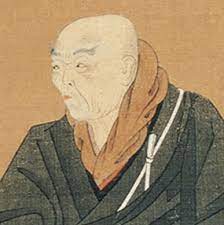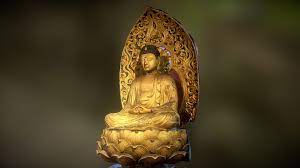
日本だけでなく、世界でも非常に人気の高い、親鸞。その理由を探ります――
バイリンガルで、どうぞ。
Shinran is very popular among not only Japanese people but also people
around the world. Let’s search for the reason behind ――more to come
both in English and in Japanese.
■Voluntary
Some of his followers traveled hundreds of miles from the Tokyo area to Kyoto
to ask if he knew of teachings other than the Jodo-Shinshu way. He replied emphatically,
“No,” since for a foolish person such as he, there was no other path. He did not,
however, force them to accept the way. He wanted them to decide for themselves.
Now, whether you accept the Nembutsu, entrusting yourself to it, or reject it,
there is your own decision. (Tannisho, p.7)
■自発的
ある時、数人の弟子たちが現在の東京あたりから京都まで何百キロも旅をし、浄土真宗
以外の救いの道を親鸞が知っているかどうかと聞きにやって来ました。親鸞は力強く
「知らない」と答えます。その理由は、自分のような愚かな者にとって他の道は
あり得ないというものでした。しかし親鸞はこの道を強制せず、自分自身で決めて
ほしいと願ったのでした。
このうへは、念仏をとりて信じたてまつらんとも、またすてんとも、面々の御計なりと
云々。(「歎異抄」『親鸞著作全集』金子大栄編、p.676)
要は、この道を選ぶかどうかは、一人ひとりが自発的に決めることなのです。
■Personal
This quality in Shinran finds expression in his famous utterance:
When I ponder the compassionate vow of Amida, established through five kalpas of
profound thought, it was for myself, Shinranm alone. (Tannisho, p.35)
■実存的
この特徴は親鸞の下記のような有名な言葉に表れています。
弥陀の五劫の思惟の願をよくよく案ずれば、ひとへに親鸞一人がためなりけり。
He is certainly not monopolizing the teaching for himself to the exclusion of others.
Rather, based on his awareness about his own imperfect nature after a long hard search,
he decided that the teaching was tailor-made for him. He was not in any position to
speak for anyone else. The statement was a deeply personal admission, tested against
his own experience.
親鸞は決して教えを一人占めにして、他の人々を締め出そうとしているのでは
ありません。そうではなくて、長い求道の末に自分自身の不完全さにめざめたので、
この教えは彼のためのオーダーメイドのものだと確信したのです。他の人々のことを
言える立場ではなかったのです。この言葉は自分自身の経験に裏づけられた、真に
実存的なものなのです。
The Buddhist appeal has always been primarily to the individual. A Buddhist is
encouraged to try to clean up his own backyard before he points out or
even tries to help clean up someone else’s backyard.
仏教は常に自己を問題にするのです。他人の庭の批判や掃除の手伝いではなく、
自分自身の庭の掃除から始めるように仏教は勧めます。
My second anthology is published now.
Please order it from Amazon if you are interested in.
私の2番目の詩集が、現在、出版されています。
興味のある方は、アマゾンでご購入をお願いいたします。
■プライバシー・ポリシー
当ブログは、Amazon.co.jpを宣伝しリンクすることによってサイトが紹介料を獲得
できる手段を提供することを目的に設定されたアフィリエイト宣伝プログラムである、
Amazonアソシエイト・プログラムの参加者です。このプログラムにおいて、
第三者がコンテンツおよび宣伝を提供し、ユーザーからの情報を収集し、訪問者の
ブラウザーにクッキーを設定することがあります。プログラムにおいて情報の
扱いについてはAmazon.co.jpプライバシー規約をご確認ください。









